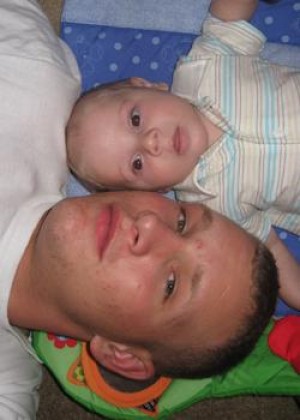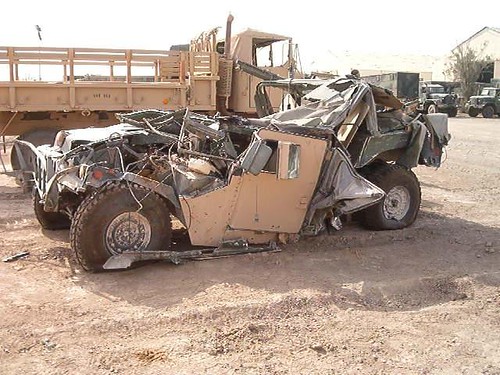 |
| Michael Yates and son Kamren |
Why are you here? the
psychiatrist asks. What is the
presenting problem? What can I—what can
we—do to help?
Almost weekly, Camp Liberty’s combat stress unit faced a
volatile situation, Jones says. Somebody
overdosed. Someone else threatened to
kill their commander.
Serious as it sounds, however, “most of these crises were
not due to mental illness,” he explains.
“Most were situational. Almost always, we were able to return the soldiers to duty.”
Jones is back to choking up, especially when he describes
the weight of the consolidating force, as the Iraq conflict wound down, base fields scattered in country
folded up, and reassigned personnel descended, en masse, on whatever and
whomever was left.
Part of pushing back on that weight, and keeping his own
gyroscope balanced, meant assuring that soldiers with situational crises not
flee.
“We were so consumed working with troops who were so hot, so
volatile, people might wonder how we could keep them in a theater of war,”
Jones explains. “But when it came down
to it, we dealt well with most issues: people facing criminal charges; people at the boiling point with co-workers
in their command; people with serious, harmful ideations.”
Russell’s defense team claims he fell into the latter
category.
 |
| Medical evacuation helicopter |
Until the massacre, John Russell did nothing. He only said.
“You can’t just say ‘I’m suicidal’ and expect to be evacuated,” Jones says. “It doesn’t work that way.”
“Evacuation,”
as the name implies, is a big deal: a
retreat in the face of an oncoming storm;
a pullback of arms and troops;
and the backward—as opposed to forward—movement of a single soldier,
from the frontlines to a unit clinic; from his or her unit to the combat support
hospital (CSH); from the CSH to a base
hospital in Germany; from Germany to Walter Reed Army Medical Center in
Washington, D.C.
Each successive move backward changes the soldier and places
the unit in harm's way, Jones explains.
A soldier’s diagnosis tends to get amplified, even
exaggerated, as he or she moves farther and farther back from the front. “A kind of diagnostic fog sets
in,” Jones says.
 The original diagnosis is based on charts, notes, personnel,
communications, and observations that are harder to retrieve and review with
each successive step away from the soldier's original location. People are constantly on the move, and communications—electronic, written, and otherwise —is in continual FUBAR flux.
The original diagnosis is based on charts, notes, personnel,
communications, and observations that are harder to retrieve and review with
each successive step away from the soldier's original location. People are constantly on the move, and communications—electronic, written, and otherwise —is in continual FUBAR flux.
The subsequent diagnosis (away from the front) is based on this uncertain communication and a
changing sense of self, from soldier in uniform to patient in hospital gown.
The foggy upshot: a situational stress diagnosis in the field can morph into a psychosis diagnosis in a hospital back home.
The foggy upshot: a situational stress diagnosis in the field can morph into a psychosis diagnosis in a hospital back home.
Evacuations—even of single soldiers—also
involve risk and coordination, of vehicles, helicopters, and troops. Jones recalls hearing about evacuations in so-called “soft
shelled Hummers”—Humvee military trucks with canvas tops trundling across
blowing sand and enemy eyes.
“They drive through towns with all the doors off, each soldier with a firearm facing a potential sniper—behind clotheslines, through windows, up in balconies where they can’t see anything but shadows,” Jones explains. “Any movement in a theater of war exposes people to attack. It’s just not something you do without serious justification.”
“They drive through towns with all the doors off, each soldier with a firearm facing a potential sniper—behind clotheslines, through windows, up in balconies where they can’t see anything but shadows,” Jones explains. “Any movement in a theater of war exposes people to attack. It’s just not something you do without serious justification.”
You can’t just say you need to be evacuated out of the Army, in
other words, so caregiver deception can become a high and dangerous
art. Soldiers seeking exits will go to
the mat with physicians, psychiatrists, and anyone else they think can write
the magic prescription: a medical
or psychiatric discharge.
Russell wanted out of the Army, but he was calm in comparison to most discharge seekers. “Other than minor incidents of heated words
exchanged, there was nothing,” Jones says.
“No trouble. No administrative
actions.”

No comments:
Post a Comment